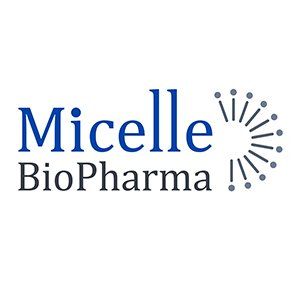预约演示
更新于:2025-05-07
Ethyl Polyenoate
多烯酸乙酯
更新于:2025-05-07
概要
基本信息
在研机构 |
非在研机构- |
权益机构- |
最高研发阶段批准上市 |
首次获批日期 中国 (2022-04-29), |
最高研发阶段(中国)批准上市 |
特殊审评孤儿药 (欧盟) |
登录后查看时间轴
结构/序列
分子式C24H36O2 |
InChIKeyITNKVODZACVXDS-UHFFFAOYSA-N |
CAS号84494-72-4 |
查看全部结构式(2)
关联
1
项与 多烯酸乙酯 相关的临床试验NCT01554462
The Effects of Eicosapentaenoic Acid (EPA)/ Docosahexaenoic Acid (DHA) Supplementation on Cognitive Control in Children With Attention Deficit Hyperactivity Disorder (ADHD)
Forty children with and 40 children without Attention deficit Hyperactivity Disorder (ADHD) receive Docosahexaenoic Acid (DHA) and Eicosapentaenoic Acid (EPA) or placebo via a dietary intervention. Cognitive control functions are measured with functional Magnetic Resonance Imaging (MRI) before and after the intervention. Behavioural change is monitored with behavioural scales.
开始日期2009-01-01 |
申办/合作机构 Unilever R&D [+1] |
100 项与 多烯酸乙酯 相关的临床结果
登录后查看更多信息
100 项与 多烯酸乙酯 相关的转化医学
登录后查看更多信息
100 项与 多烯酸乙酯 相关的专利(医药)
登录后查看更多信息
4
项与 多烯酸乙酯 相关的文献(医药)2023-03-01·Life Sciences
Short peptide domains of the Wnt inhibitor sFRP4 target ovarian cancer stem cells by neutralizing the Wnt β-catenin pathway, disrupting the interaction between β-catenin and CD24 and suppressing autophagy
Article
作者: Varier, Lavanya ; Sundaram, S Mohana ; Warrier, Sudha ; Dharmarajan, Arun ; Fathima, Khan Zahara
2017-03-01·Journal of Clinical Lipidology2区 · 医学
Minimal food effect for eicosapentaenoic acid and docosahexaenoic acid bioavailability from omega-3–acid ethyl esters with an Advanced Lipid Technologies TM (ALT ® )–based formulation
2区 · 医学
Article
作者: Maki, Kevin C ; Daak, Ahmed A ; Lopez-Toledano, Miguel A ; Johns, Colleen ; Sancilio, Frederick D ; Thorsteinsson, Thorsteinn ; Rabinowicz, Adrian L
2017-03-01·Clinical Therapeutics4区 · 医学
A Novel ω-3 Acid Ethyl Ester Formulation Incorporating Advanced Lipid Technologies TM (ALT ® ) Improves Docosahexaenoic Acid and Eicosapentaenoic Acid Bioavailability Compared with Lovaza ®
4区 · 医学
Article
作者: Maki, Kevin C ; Lopez-Toledano, Miguel A ; Sancilio, Frederick D ; Johns, Colleen ; Daak, Ahmed ; Thorsteinsson, Thorsteinn ; Rabinowicz, Adrian L
24
项与 多烯酸乙酯 相关的新闻(医药)2025-03-04
·米内网
精彩内容
近期,内服血脂调节剂市场新品不断,北京四环科宝制药的氟伐他汀钠缓释片以仿制4类报产在审。今年以来,内服血脂调节剂已有11个品种(28个受理号)报产在审,科伦药业、齐鲁制药等冲刺首仿。米内网数据显示,内服血脂调节剂(化+生)在2024年Q1-Q3在中国零售药店终端同比增长超过12%,TOP20中,20亿大品种领跑,独家产品暴涨112%,海正药业、京新药业、神奇制药、方盛制药等上榜。
大涨12%,晖致、阿斯利康、欧加农位居前三
近年中国零售药店终端内服血脂调节剂销售情况(单位:亿元)来源:米内网格局数据库
米内网数据显示,内服血脂调节剂(化+生)在近年中国零售药店(城市实体药店和网上药店)终端市场规模稳步增长,均超过50亿元,2024年Q1-Q3同比增长12.37%。其中,城市实体药店是主要销售渠道;网上药店则快速增长,销售额已超过2023年全年。
2024年Q1-Q3中国零售药店终端内服血脂调节剂集团TOP5来源:米内网格局数据库
从集团TOP20来看,晖致、阿斯利康、欧加农制药、浙江海正药业、乐普医疗位居前五,方盛制药增速(162.59%)最快,首次晋身TOP20。从治疗小类来看,HMGCoA还原酶抑制剂市场份额最大,占超过8成,其他血脂调节剂则增速最快。从在销品种数量来看,产品超过60个,品牌超过280个。
20亿大品种领跑,独家产品暴涨112%,京新、方盛上榜
2024年Q1-Q3中国零售药店终端内服血脂调节剂产品TOP20(单位:亿元)来源:米内网格局数据库注:销售额不足1亿元以*表示,标红为独家产品
产品TOP20中,阿托伐他汀钙片多年来稳居“销冠”宝座,以超20亿元的销售规模领跑,瑞舒伐他汀钙片则紧跟其后。从增速来看,维E三油胶丸(112.05%)是唯一一个翻倍的产品,瑞舒伐他汀钙片(25.49%)、依折麦布片(34.36%)、非诺贝特胶囊(18.10%)、多烯酸乙酯软胶囊(26.75%)、海博麦布片(74.39%)、ω-3脂肪酸乙酯90软胶囊(94.27%)、匹伐他汀钙分散片(29.00%)均有双位数增速。
6个独家品种中,阿托伐他汀钙分散片(广东九瑞科技)、海博麦布片(浙江海正药业)、维E三油胶丸(贵州神奇药业)、匹伐他汀钙分散片(京新药业)在近年均持续增长。
2024年Q1-Q3中国零售药店终端内服血脂调节剂品牌TOP20(单位:亿元)来源:米内网格局数据库注:销售额不足1亿元以*表示
品牌TOP20中,晖致的阿托伐他汀钙片和阿斯利康的瑞舒伐他汀钙片销售额均超过10亿元。北京福元医药的阿托伐他汀钙片、浙江海正药业的海博麦布片等5个品牌新上榜,其中,斯洛文尼亚莱柯的瑞舒伐他汀钙片(302.57%)、湖南方盛制药的依折麦布片(162.59%)、贵州神奇药业的维E三油胶丸(112.05%)均增速翻倍。
依折麦布片在近年中国零售药店终端保持双位数增速,2024年Q1-Q3销售额已超过3亿元,接近2023年全年。欧加农制药的市场份额最大;湖南方盛制药位居第二,市场份额从2021年不足1%到2024年Q1-Q3超过8%。
海博麦布片是浙江海正药业的1类新药,该产品在近年中国零售药店终端市场规模快速扩容,2023年-2024年Q1-Q3分别同比增长289.19%、74.39%,跃升到内服血脂调节剂(化+生)TOP11产品。海正药业表示,海博麦布片被纳入《中国血脂管理指南(基层版2024年)》《糖尿病患者血脂管理中国专家共识(2024版)》《中国慢性冠脉综合征患者诊断及管理指南》,提升其在胆固醇领域的治疗地位,公司将持续加速产品的市场覆盖和准入进程。
科伦、齐鲁……猛攻首仿,海正改良型新药来袭
今年以来报产在审的内服血脂调节剂来源:米内网中国申报进度(MED)数据库
近日,CDE官网显示,北京四环科宝制药的氟伐他汀钠缓释片以仿制4类报产在审。在此之前,齐鲁制药(海南)的瑞舒伐他汀依折麦布片(Ⅰ)、四川科伦药业的瑞舒伐他汀依折麦布片(Ⅰ)等3个产品同日报产。
今年以来,内服血脂调节剂已有11个品种(28个受理号)报产在审,瑞舒伐他汀依折麦布片(Ⅰ)和瑞舒伐他汀依折麦布片(Ⅱ)暂无仿制药获批,而瑞舒伐他汀依折麦布片(Ⅰ)竞争最激烈,目前共有20家企业报产在审,其中,齐鲁制药(海南)、四川科伦药业、江西施美药业、山东齐都药业等9家企业均在今年报产。
来源:米内网项目进度数据库
此外,海博麦布阿托伐他汀钙片为瀚晖制药|浙江海正药业的2.3类改良型新药。资料显示,该产品作为饮食控制以外的辅助治疗,拟用于治疗原发性(杂合子家族性或非家族性)高胆固醇血症或混合性高脂血症,可降低总胆固醇(TC)、低密度脂蛋白胆固醇(LDL-C)、载脂蛋白B(ApoB)水平和甘油三酯(TG)水平。
资料来源:米内网数据库、公司公告等注:米内网《中国城市实体药店药品终端竞争格局》,统计范围是:全国地级及以上城市实体药店,不含县乡村药店;《中国网上药店药品终端竞争格局》,统计范围是:全国网上药店所有药品数据,包括天猫、京东等第三方平台及私域平台上所有网上药店药品数据;上述销售额以产品在终端的平均零售价计算。如有疏漏,欢迎指正!
免责声明:本文仅作医药信息传播分享,并不构成投资或决策建议。本文为原创稿件,转载文章或引用数据请注明来源和作者,否则将追究侵权责任。投稿及报料请发邮件到872470254@qq.com稿件要求详询米内微信首页菜单栏商务及内容合作可联系QQ:412539092
【分享、点赞、在看】点一点不失联哦
申请上市IPO
2025-01-21
·米内网
精彩内容
近期,心脑血管系统药物市场再掀波澜,江西施美药业的阿齐沙坦氨氯地平片、四川百利药业的沙库巴曲缬沙坦钠片等同日报产。米内网数据显示,心脑血管系统药物(化学药+生物药)在2024年Q1-Q3中国零售药店终端销售规模近200亿元,同比增长6.44%。TOP20中,实体药店5个超10亿产品领跑,施慧达、华润双鹤等上榜;网上药店20个产品全线上涨,8个销售额超过1亿元。2023年至今,心脑血管系统药物有超过150个品种报产在审,包括8个新药,涉及广东东阳光药业、深圳信立泰药业等企业。
近年中国零售药店终端心脑血管系统药物销售情况(单位:万元)来源:米内网格局数据库
米内网数据显示,心脑血管系统药物(化学药+生物药)在2024年Q1-Q3中国零售药店(城市实体药店+网上药店)终端销售规模近200亿元,同比增长6.44%。其中,城市实体药店是主要销售渠道;而网上药店则快速增长,销售额已超过2023年全年。
从治疗亚类来看,高血压用药是第一畅销亚类,其次是血脂调节剂,合计市场份额超过90%。从在销品种数量来看,产品超过400个,品牌超过1800个。
实体药店:5个超10亿产品领跑,施慧达、华润双鹤上榜
2024年Q1-Q3中国城市实体药店心脑血管系统药物集团TOP20来看,晖致、诺华、阿斯利康、拜耳、施慧达药业集团位居前五,诺华、石药集团、安进生物均有双位数增速。
2024年Q1-Q3中国城市实体药店心脑血管系统药物产品TOP20(单位:亿元)来源:米内网中国城市实体药店药品终端竞争格局注:销售额低于5亿元用*表示
产品TOP20中,阿托伐他汀钙片、苯磺酸氨氯地平片、硝苯地平控释片等5个超过10亿元产品领跑,苯磺酸氨氯地平片在销企业数最多,超过60家。从治疗亚类来看,高血压用药最多,有14个,血脂调节剂有5个,脑血管治疗用药1个。
3个独家产品中,英克司兰钠注射液(诺华)为新上榜产品,依洛尤单抗注射液(安进)重返TOP20之列,分别同比增长511.15%、41.04%。
2024年Q1-Q3中国城市实体药店心脑血管系统药物品牌TOP20(单位:亿元)来源:米内网中国城市实体药店药品终端竞争格局注:销售额低于5亿元用*表示
品牌TOP20中,外资品牌占据头部位置,7个销售额超过5亿元。晖致的阿托伐他汀钙片、拜耳的硝苯地平控释片、施慧达药业集团(吉林)的苯磺酸左氨氯地平片位居前三。从数量来看,诺华和阿斯利康各有4个上榜。从增速来看,诺华的英克司兰钠注射液是唯一一个翻倍的品牌,阿斯利康的瑞舒伐他汀钙片、诺华的沙库巴曲缬沙坦钠片、安进的依洛尤单抗注射液、欧加农制药的依折麦布片均有双位数增速。
阿托伐他汀钙片为他汀类血脂调节药,主要用于治疗高胆固醇血症和冠心病。该产品在近年城市实体药店均保持在20亿元以上销售规模,2024年Q1-Q3同比增长近2%,晖致的市场份额最大,湖南迪诺制药和乐普制药分别位居第二、三位。
复方利血平氨苯蝶啶片为华润双鹤药业的独家产品,是广泛使用的经典复方降压制剂,该产品在2024年Q1-Q3城市实体药店销售额超过1亿元。华润双鹤药业表示,公司通过多年来在复方利血平氨苯蝶啶片(0号)、苯磺酸氨氯地平片(压氏达)、缬沙坦胶囊(穗悦)等核心产品的经营积累,聚焦在降压、降糖、脑血管、降脂领域,逐步形成慢病药物产品群,尤其在降压领域形成多品类降压产品线。
网上药店:产品TOP20全线上涨,乐普、瀚晖上榜
2024年Q1-Q3中国网上药店心脑血管系统药物集团TOP20中,19家有双位数增速,阿斯利康、诺华、晖致、拜耳、赛诺菲位居前五,国内集团仅有正大制药和华海药业在前十之列。
2024年Q1-Q3中国网上药店心脑血管系统药物产品TOP20(单位:亿元)来源:米内网中国网上药店药品终端竞争格局注:销售额低于1亿元用*表示
产品TOP20中,8个销售额超过1亿元,瑞舒伐他汀钙片、阿托伐他汀钙片、苯磺酸氨氯地平片位居前三,盐酸决奈达隆片和盐酸贝尼地平片是新上榜产品。从治疗亚类来看,高血压用药最多,有15个,血脂调节剂有3个,脑血管治疗用药和心脏病治疗用药各1个。
从增速来看,20个产品全线上涨,盐酸决奈达隆片增速翻倍,缬沙坦胶囊、盐酸贝尼地平片、瑞舒伐他汀钙片、厄贝沙坦片、缬沙坦氨氯地平片(Ⅰ)、沙库巴曲缬沙坦钠片、非洛地平缓释片均有超过50%增速。
2024年Q1-Q3中国网上药店心脑血管系统药物品牌TOP20(单位:亿元)来源:米内网中国网上药店药品终端竞争格局注:销售额低于1亿元用*表示
品牌TOP20中,阿斯利康的瑞舒伐他汀钙片、晖致的阿托伐他汀钙片、拜耳的硝苯地平控释片位居前三,斯洛文尼亚莱柯的瑞舒伐他汀钙片和瀚晖制药的氨氯地平阿托伐他汀钙片是新上榜品牌。从数量来看,诺华和阿斯利康各有3个上榜。从增速来看,诺华的缬沙坦胶囊和斯洛文尼亚莱柯的瑞舒伐他汀钙片翻倍;9个品牌有双位数增速,其中,拜耳的维立西呱片、赛诺菲的厄贝沙坦片、瀚晖制药的氨氯地平阿托伐他汀钙片、阿斯利康的瑞舒伐他汀钙片和非洛地平缓释片、晖致的苯磺酸氨氯地平片、诺华的沙库巴曲缬沙坦钠片和缬沙坦氨氯地平片(Ⅰ)、乐普制药的阿托伐他汀钙片均超过50%。
大批新品蜂拥而至,东阳光药、信立泰……新药来袭
2025年1月21日,CDE官网显示,江西施美药业的阿齐沙坦氨氯地平片、四川百利药业的沙库巴曲缬沙坦钠片、山西鑫煜制药|大连美创药业的ω-3脂肪酸乙酯90软胶囊、成都欣捷高新技术|四川赛卓药业的苯磺酸左氨氯地平片、江苏利泰尔药业的瑞舒伐他汀依折麦布片(I)等心脑血管系统药物同日报产在审。2023年至今心脑血管新药报产在审情况来源:米内网中国申报进度(MED)数据库
2023年至今,心脑血管系统药物(化学药+生物药)已有超过150个品种(超1000个受理号)报产在审,包括8个新药,广东东阳光药业的苯磺酸氨氯地平颗粒、锦州奥鸿药业的SBK010口服溶液、深圳信立泰药业的阿利沙坦酯吲达帕胺缓释片等4个改良型新药,上药信谊药厂的苹果酸司妥吉仑片、深圳信立泰药业的沙库巴曲阿利沙坦钙片等4个1类新药。
资料来源:米内网数据库、CDE官网等注:米内网《中国城市实体药店药品终端竞争格局》,统计范围是:全国地级及以上城市实体药店,不含县乡村药店;《中国网上药店药品终端竞争格局》,统计范围是:全国网上药店所有药品数据,包括天猫、京东等第三方平台及私域平台上所有网上药店药品数据;上述销售额以产品在终端的平均零售价计算。如有疏漏,欢迎指正!
本文为原创稿件,转载请注明来源和作者,否则将追究侵权责任。投稿及报料请发邮件到872470254@qq.com稿件要求详询米内微信首页菜单栏商务及内容合作可联系QQ:412539092
【分享、点赞、在看】点一点不失联哦
申请上市
2025-01-08
·漫游药化
什么是氧化反应?
氧化反应的驱动力是什么?
为什么富电子体系容易被氧化?
从电负性角度分析,有机化合物的氧化还原反应的概念仍是化合价的升价(氧化还原最初概念)的延伸,是高价元素和低价元素之间的某种中和
富电子物种(醇羟基)与缺电子物种(七价锰)相结合,部分新物种不稳定,发生分解,结果就是:富电子物种的一部分(H)转移给缺电子物种(七价锰),富电子物种变得不再那么富(醛),缺电子物种变得不再那么缺(低价锰);
向极度缺电子的Cr(VI)引入其他富电子物种(如水、吡啶、盐酸吡啶、喹啉、DMAP等),通过降低整体的缺电子程度,或使用容易配位的溶剂(DMF、DMSO、乙酸、丙酮等),提高氧化反应的选择性:如可以将醇的氧化反应控制在醛等阶段、选择性的氧化烯丙醇/苄醇/伯醇等、选择性氧化某些特殊位置的醇等等。
更多相关内容可以查看《Oxidation of Alcohols to Aldehydes and Ketones》这本书
引申:酸性药物或有一定亲电活性的药物用DMSO做溶剂残留时要在关注二甲硫醚等DMSO的分解产物
最重要的氧化降解参与者——氧气如何发挥Mn、Cr、DMSO类似的作用呢?
激态和第二激发态:三线态氧气,相对稳定的双自由基性质,可以与活泼的自由基物种结合;
第一激发态:单线态氧气,具有空轨道,具有亲电性
富电子共轭体系即富电子,容易与缺电子物种(如激发态氧)结合;又容易失去H等,形成自由基,存在于基态氧结合的风险;这两个因素决定了富电子共轭体系及其容易被氧化。
含富电子共轭体系药物的氧化降解产物的两个主要特点:
1、降解位点发生直接发生在共轭体系上,然后XXXX
2、降解位点发生在共轭体系的附属结构上,然后XXXX
例3:培美曲塞9个降解产物中8个与最富电子的共轭体系(吡咯环:五中心六电子)的氧化相关
例4:普拉克索典型的降解产物均与富电子共轭体系(氨基噻唑-6中心8电子)相关
例5:多西他赛降解产物中与富电子体系相关的氧化产物占比较大
例6:油脂类的酸值/过氧化值/甲氧苯胺值——以15版药典中多烯酸乙酯的质量标准为例
1、含有富共轭体系的药物,氧化降解是不可忽视的、也是最重要的降解途径之一
2、含有富共轭体系的药物,氧化降解的主要位点:
①降解位点发生直接发生在富电子共轭体系上;
②降解位点发生在与富电子共轭体系相连的附属结上。
3、含有富共轭体系的药物,氧化降解产物的结构复杂多样,原因主要有三点:
①氧化降解最常见的机理为自由基机理,降解位点较多;
②最初的降解产物活性较高,且周围往往有较多其他官能团,进一步降解的概率较高;
③部分降解产物的活性比主成分更大,容易进一步被氧化
核酸药物
100 项与 多烯酸乙酯 相关的药物交易
登录后查看更多信息
研发状态
10 条最早获批的记录, 后查看更多信息
登录
| 适应症 | 国家/地区 | 公司 | 日期 |
|---|---|---|---|
| 高甘油三酯血症 | 中国 | 2022-04-29 |
登录后查看更多信息
临床结果
临床结果
适应症
分期
评价
查看全部结果
| 研究 | 分期 | 人群特征 | 评价人数 | 分组 | 结果 | 评价 | 发布日期 |
|---|
No Data | |||||||
登录后查看更多信息
转化医学
使用我们的转化医学数据加速您的研究。
登录
或

药物交易
使用我们的药物交易数据加速您的研究。
登录
或

核心专利
使用我们的核心专利数据促进您的研究。
登录
或

临床分析
紧跟全球注册中心的最新临床试验。
登录
或

批准
利用最新的监管批准信息加速您的研究。
登录
或

特殊审评
只需点击几下即可了解关键药物信息。
登录
或

生物医药百科问答
全新生物医药AI Agent 覆盖科研全链路,让突破性发现快人一步
立即开始免费试用!
智慧芽新药情报库是智慧芽专为生命科学人士构建的基于AI的创新药情报平台,助您全方位提升您的研发与决策效率。
立即开始数据试用!
智慧芽新药库数据也通过智慧芽数据服务平台,以API或者数据包形式对外开放,助您更加充分利用智慧芽新药情报信息。
生物序列数据库
生物药研发创新
免费使用
化学结构数据库
小分子化药研发创新
免费使用

